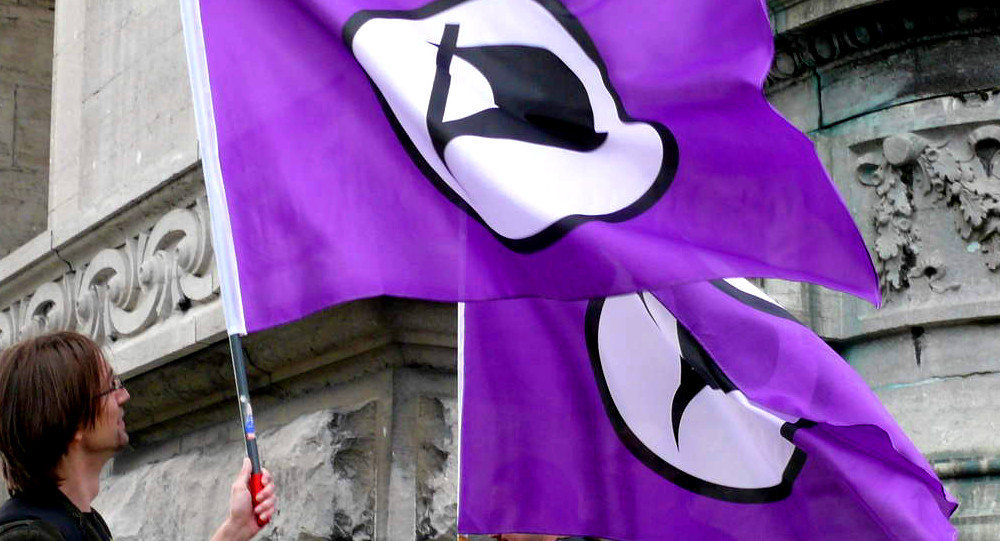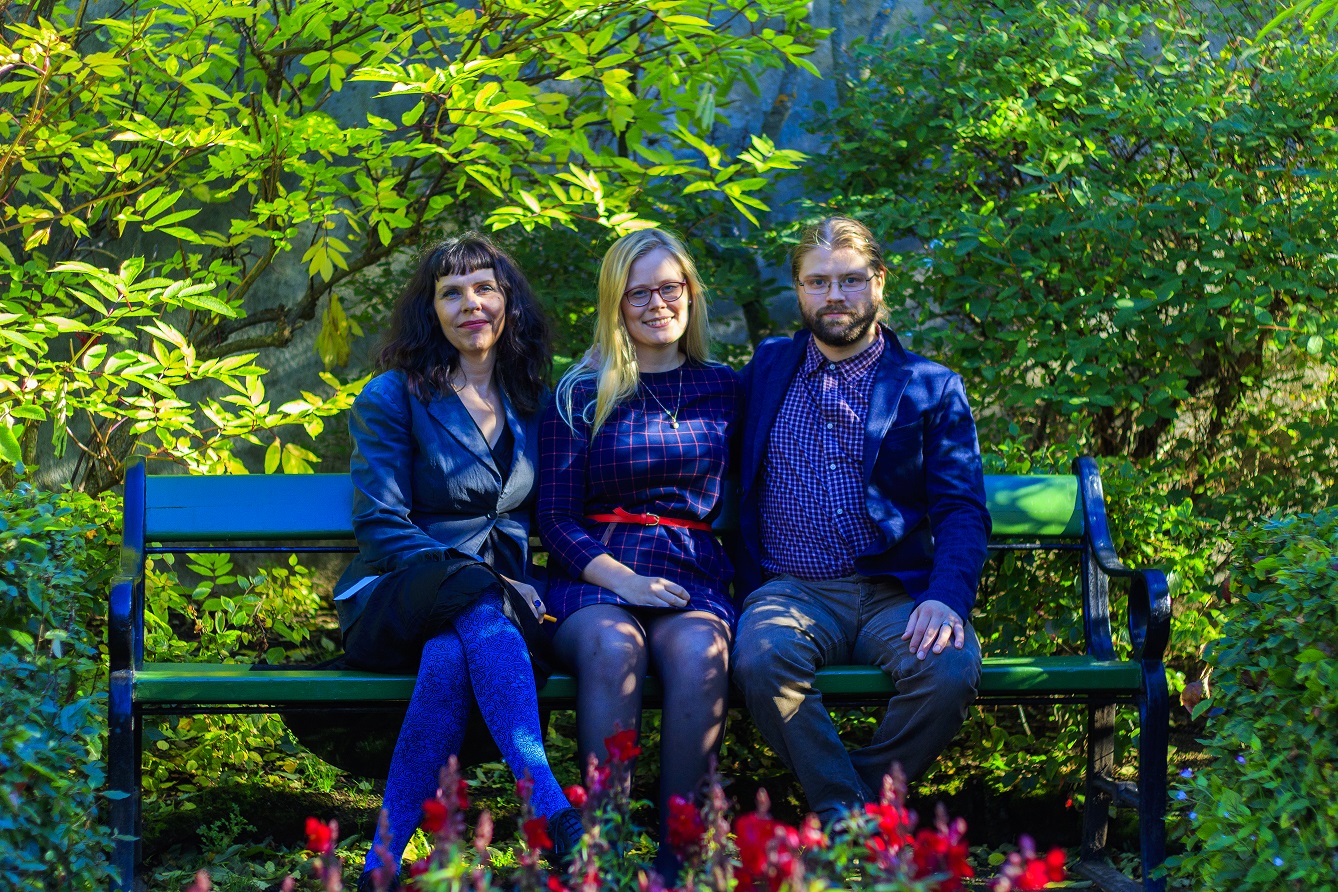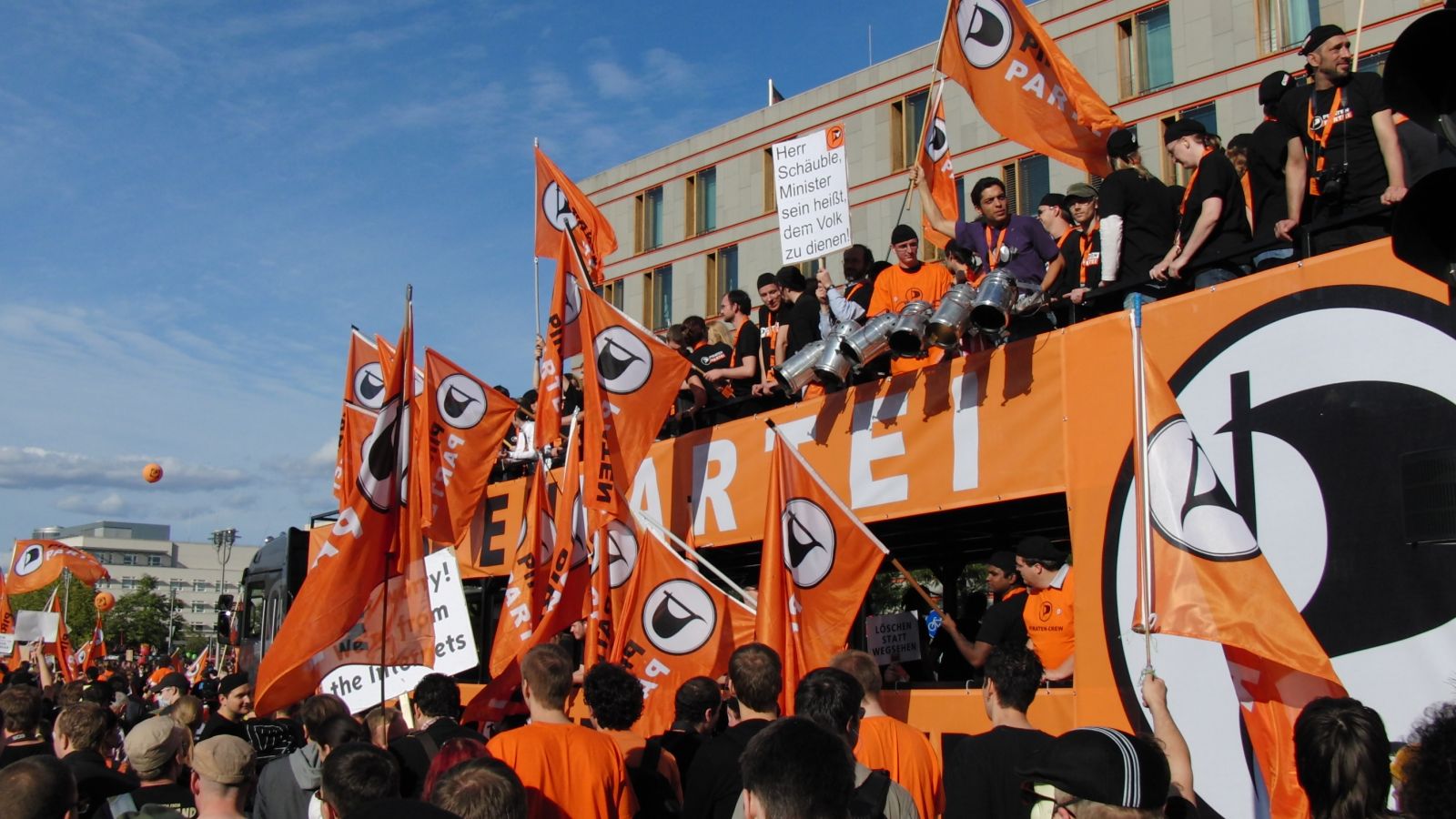
REYKJAVIK, Iceland — The party that could be on the cusp of winning Iceland’s national elections on Saturday didn’t exist four years ago.
Its members are a collection of anarchists, hackers, libertarians and Web geeks. It sets policy through online polls — and thinks the government should do the same. It wants to make Iceland “a Switzerland of bits,” free of digital snooping. It has offered Edward Snowden a new place to call home.
And then there’s the name: In this land of Vikings, the Pirate Party may soon be king.
The rise of the Pirates — from radical fringe to focal point of Icelandic politics — has astonished even the party’s founder, a poet, Web programmer and former WikiLeaks activist.
“No way,” said 49-year-old Birgitta Jónsdóttir when asked whether she could have envisioned her party governing the country so soon after its launch.
But this, after all, is 2016. And to a string of electoral impossibilities that suddenly became reality — including Britain voting for Brexit and Donald Trump winning the Republican nomination — the world may soon add a Pirate Party-led government in Europe.
Victory for the Pirates may not mean much in isolation. This exceptionally scenic, lava-strewn rock just beyond the Arctic Circle has a population less than half that of Washington, D.C., with no army and an economy rooted in tourism and fishing.
But a Pirate Party win would offer a vivid illustration of how far Europeans are willing to go in their rejection of the political mainstream, adding to a string of insurgent triumphs emanating from both the far left and far right.
To Jónsdóttir and other Pirate true believers — who define their party as neither left nor right, but a radical movement that combines the best of both — the election here could also be the start of the reboot that Western democracy so desperately needs.
“People want real changes and they understand that we have to change the systems, we have to modernize how we make laws,” said Jónsdóttir, whose jet-black hair and matching nail polish cut a distinctive profile in a country where politics has long been dominated by paunchy blond men.
The sticker affixed to the back of her chrome-finish laptop stands out, too: an imitation seal of the U.S. government, the familiar arrow-bearing eagle encircled by the words “National Security Agency Monitored Device.” At the Pirates’ tech-start-up-esque office in an industrial area of Reykjavik’s seafront, a Guy Fawkes mask hangs from the wall and a skull-and-crossbones flag peeks out from a ceramic vase.
Iceland is, in some ways, a strange place for such a rogue movement to flourish. The country is one of Earth’s most equitable, most peaceful and most prosperous. Home to the world’s oldest parliament — it traces its origins back to a gathering of Norse settlers in A.D. 930 — this remote island nation that can feel more like a small, genteel town is not known for political turbulence.
But Iceland has been afflicted by the same anti-establishment fervor that has swept the rest of the Western world in recent years.
In many ways, the alienation from politics has been even more acute here. The 2008 global financial crisis brought the once highflying economy to ruin, saved only by a $4.6 billion international bailout. Bankers went to jail, and a street protest movement was born.
The populist spirit was revved up once again this past spring when the leak of the Panama Papers revealed an offshore company owned by the prime minister’s wife that staked a claim to Iceland’s collapsed banks. The perceived conflict of interest brought thousands of protesters to the streets, a crowd that, as a share of the overall population, was equal to as many as 21 million people in the United States.
With protests building, the prime minister quit and new elections were called. But the public’s cynicism about a political system long steered by an insider clique only deepened.
“The distrust that had long been germinating has now exploded. The Pirates are riding on that wave,” said Ragnheithur Kristjánsdóttir, a political history professor at the University of Iceland. “We’ve had new parties before, and then they’ve faded. What’s surprising is that they’re maintaining their momentum.”
The Pirates, part of an international movement of the same name, are not the only ones seizing on the country’s discontented political spirit. Several new parties have surged and could well set Iceland’s direction for the next four years. Meanwhile, parties that have traded power in Iceland for decades are bumping along in polls at historic lows.
Outsiders may regard the idea of a government run by Pirates as a joke. But “the voters think a joke is better than what we have now,” said Benedikt Jóhannesson, leader of another insurgent party that is even younger than the Pirates and has also earned substantial support.
Jóhannesson hastens to add that he doesn’t see the Pirates as a joke. His buttoned-down party is made up of technocrats, academics and business executives, a far cry from the punk-rock, hacker spirit of the Pirates.
But the two may be in coalition talks after the election if, as expected, no party comes anywhere near the majority needed to govern. He may not agree with the Pirates on many issues, he said, but at least they share a belief in the need for fundamental change.
“Some of our parties have been around for 100 years,” said Jóhannesson, fresh off a 10-hour drive back from a campaign swing through the remote Icelandic countryside. “But the systems that worked in, say, the 1960s don’t necessarily work for the 2010s.”
Not everyone is so gung-ho about calls for radical change.
The latest opinion polls show the Pirates jostling for first place with the Independence Party. The center-right party is synonymous with Iceland’s political establishment, having governed the country for much of its modern history. But it was badly tarnished by its stewardship of the bubble economy in the lead-up to the 2008 crash.
“People are still angry at us for that,” acknowledged Birgir Ármannsson, an Independence member of Parliament. “There’s still a lot of distrust in traditional politics and traditional politicians.”
That’s understandable given the scale of Iceland’s economic meltdown, Ármannsson said. But he also said voters should give the current government, of which Independence is a junior partner, credit for Iceland’s economic revival. Now out of the doldrums, the country is back to low unemployment, low inflation and a balanced budget — all of which could be at risk if the Pirates come to power.
“You can try experiments,” said the suit-and-tie-clad Ármannsson in an interview at the country’s 19th-century stone Parliament building. “But if you want economic stability and growth, then you have to vote for us.”
Ármannsson questioned what the Pirates actually represent: “They know what they’re against. But it’s difficult to find out what they’re really for.”
The Pirates have spelled out their positions on issues from fishing quotas to online pornography to Snowden. (Party leaders offered him Icelandic citizenship if he can find a way to get here.) But on some of the biggest questions facing the country, the official party position is to punt to the voters.
Whether Iceland should join the European Union, for instance, is a debate that has raged in the country for years. But the Pirates have not taken a stand, insisting instead that the matter should be decided in a national referendum.
Some of the party’s signature proposals, meanwhile, are vaguely defined. The Pirates were born in Sweden as a movement to counter digital copyright laws. But the party’s proposal to make Iceland “a digital safe haven,” much like Switzerland is for banking, is hazy on the details.
To party devotees, that’s fine. The Pirates, they say, are less about any specific ideology than they are about a belief that the West’s creaking political systems can be hacked to give citizens a greater say in their democracy.
“We are not here to gain power,” said Ásta Guthrún Helgadóttir, a 26-year-old Pirate member of Parliament. “We are here to distribute power.”
3 WAYS TO SHOW YOUR SUPPORT
- Log in to post comments















Comments
DH Fabian replied on
OK
It's not clear what this agenda is for/against. Unfortunately, the standard political keywords don't clarify this. If the trend is toward libertarianism, I assume this means something similar to the US's "You're On Your Own" social policies -- an obviously regressive, not progressive, agenda. What matters is the impact of the agenda on the lives of the "masses."